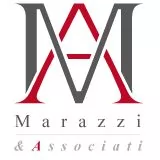Very often companies must deal with other companies whose behavior does not conform to fairness from the point of view of the protection of competition.
We are asked to assist a client to bring proceedings against the company in order to have a declaration and a condemnation, for having abused of its dominant position in the market for the sale of a particular product; the first thing to assess is that a "dominant" position does not represent per se an anti-juridical circumstance. What the legislator (both European and Italian) admonishes, in fact, is the exploitation of the position itself.
Pursuant to article 3 of Italian law no. 287 of 1990, about abuse of a dominant position, when the abuse determines a prejudice to trade between several EU member states, the Authority applies Community legislation, article 102 of the Treaty on the Functioning of the European Union.
In Italy, the competent authority in antitrust matters is the "Autorità garante della concorrenza e del mercato" (hereinafter "Authority"). It is an independent Italian administrative authority, instituted by Law no. 287 dated October 10, 1990. It has the function of protecting market competition.
According to the Antitrust Authority, abuse of economic dependence occurs when a company can determine, in its commercial relations with another company, an excessive imbalance of rights and obligations. Economic dependence is assessed by also considering the real possibility, for the party that has suffered the abuse, of finding satisfactory alternatives on the market.
A company, therefore, abuses of its dominant position when it can exploit an economic power to its own advantage, such as to prevent or hinder the persistence of effective competition on the market, as it is able to significantly act independently from its competitors, customers, and consumers.
There are four typical (but not exhaustive) abusive practices:
1) directly or indirectly imposing unfair purchase, sales, or other transaction conditions;
2) limiting production, outlets or technical development to the detriment of consumers;
3) applying dissimilar conditions for equivalent services in business dealing with other contracting parties, thereby placing the latter at a competitive disadvantage;
4) subordinating the conclusion of contracts to the acceptance by the other contracting parties of additional services which, by their nature or according to commercial usage, have no connection with the object of the contracts themselves.
The investigation in order to detect the infringement must be carried out on several levels:
a) the verification of the existence of a dominant market position;
b) the analysis of the abusiveness of the conduct in the light also of the regime of special liability that weighs on the dominant company;
c) the verification of the harmful effects on competition, even if they are only potential.
The doctrine operates among the various hypotheses a summa divisio between exploitative abuse and exclusionary abuse.
How to act to obtain protection?
In Italy, it is possible for any consumer to report an unfair commercial practice or misleading advertising, either by ordinary mail by sending the report to the Authority, or by sending the written report to the Authority's legal e-mail, or by filling in the form, accessible through the link "segnala on line", and sending it online.
It is useful to recall that these reporting procedures also apply to companies, firms or consultants in respect of misleading advertising messages or messages containing unlawful comparisons on the sale of goods or services.It should also be recalled that, with Directive No. 2014/104/EU, the European legislator introduced certain rules deemed necessary to ensure the possibility of bringing an action for damages by anyone who has suffered damage due to a violation of competition law.
The Italian legislator proceeded to implement the directive through the introduction, in the national legal system, of Legislative Decree no. 3 of January 19, 2017, which recognises precisely the right to compensation in favour of anyone who has suffered damage due to a violation by a company or an association of companies of competition law.
Damages must include actual damages, loss of earnings and interest, and must not result in overcompensation.
Cases before the European Commission may originate from: (1) a complaint, (2) the opening of an own-initiative investigation, (3) information reported by private parties, or (4) a leniency application by one of the cartel participants.
If the in-depth investigation confirms the Commission's competition concerns, a statement of objections detailing the Commission's concerns is sent to the companies involved. A company that participated in an anticompetitive agreement and thus violated competition law may have to pay a fine
Similar to the damages procedure in Italy, it is possible for any citizen or business that suffers damage as a result of an infringement of EU competition rules to claim compensation from the party that caused it. This means that victims of competition law violations can bring an action for damages before national courts. If the Commission has adopted a prohibition decision concerning the infringement, this decision can be used before national courts to prove that the conduct took place and was illegal.
It should also be noted that the national authority may impose two sanctions at the same time: one for a breach of Article 102 TFEU and one for a breach of national antitrust law.
The content of this article is intended to provide a general guide to the subject matter. Specialist advice should be sought about your specific circumstances.

